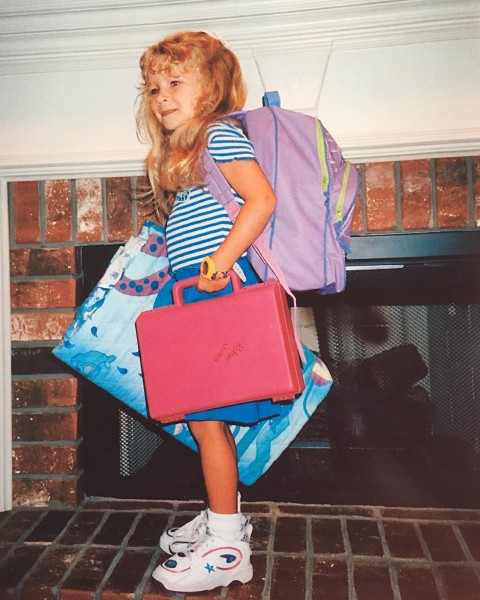6 Adoption Questions “Finding Dory” Might Raise For Your Kids
My husband and I really enjoyed “Finding Dory.” We love animated kids’ films, and this one did not disappoint.
However, adoptees may experience some emotional triggers in the film. The main theme of the movie is that Dory lost her parents. Countless times throughout the film, Dory takes responsibility for being separated from her family. Some tough questions may be raised, as it’s an adventure toward a potential familial reunion, with the adoptee figure carrying a burden of guilt.
Should I be searching for my biological family, too?
Dory’s memory is triggered, and she starts having flashbacks that make her remember she has a biological family. As soon as she remembers she had a family, she decides she needs to find them. It’s almost instinctive for her. I can relate to this feeling—it developed for me in high school. I desperately needed closure, regardless of whether I ever found my birth family or not. I needed to know that I at least tried. This theme in “Finding Dory” could make an adoptee wonder if they bear the same responsibility, too. And of course, it varies for each and every one of us.

Is there something wrong with me if I don’t want to look for my birth parents?
Dory’s reasoning for wanting to find her family stems from, “Well, I had to come from somewhere, and I need to know what happened.” Like I mentioned before, it comes off as instinctive. Not searching for her family isn’t an option for Dory. A lot of adoptees feel the exact opposite. For some, they are satisfied with the lives they have and don’t need to know anything about their birth families. For some, their birth families made that choice x number of years ago, and the adoptee is at peace with that choice. It is totally okay for adoptees not to carry the desire for a reunion. This movie may start that conversation.
Is it my fault we’re not together?
Dory bears the heaviest burden of them all: that it’s her fault she got separated from her family. Because she has short-term memory loss, because she forgot, she ruined her life and her family’s lives. In my humble opinion, this is the movie’s biggest downfall. A lot of adoptees struggle with bearing the blame for their adoption. I’ve wondered if I was loveable, or if there was something wrong with me that made my parents not want to keep me. “Finding Dory’s” main theme affirms this lie.
Will my parents help me look for my birth family?
Marlin and Nemo serve as the adoptive family figures, and they tirelessly help Dory search for her family. They were gung-ho about helping Dory reunite from the get-go. For adoptive families, this isn’t necessarily the case either. It took years of conversation and prayer before my adoptive family was ready to help me search for my birth family. It shouldn’t be assumed that it’s an easy, happy-go-lucky adventure to go on. Rather, it’s an emotional roller coaster, with fear of disappointment, or longing for the peace of closure, knit into every unknown detail.
Are they looking for me?
At the end of the movie, Dory is reunited with her family and learns that they’d been searching tirelessly for her, too. This assumption that birth families don’t rest until they are reunited with their child is a framework for fairy tales. Considering it is a Disney film, fairy tale qualities are acceptable in my book. However, it is important that adoptees recognize their birth family could very well have different families, and it’s possible their families don’t know about the adoptee. It’s important for adoptees to realize that this theme in the movie could be a false image, and adoptees should guard their hearts.
If I reunite, will I be expected to go back to my biological family?
At the end of the movie, Dory’s happy ending includes settling down into life with both her biological family and her adoptive family figures (Marlin and Nemo). But just because a reunion occurs doesn’t mean the life of the adoptee and the life of the birth family will be intertwined. It’s a complicated web of relationships to build, between adoptive parents and birth parents, and of course the adoptee’s individual relationships, too. For the sake of a Disney fairy tale ending, it was fitting. But it is important to remember that reality doesn’t parallel with Disney.






